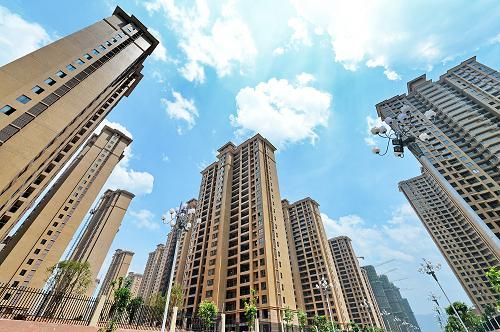>>REAL-TIME UPDATES IN THE WIRE. CLICK HERE<<<
China’s major property developers and major cities saw home sales decline further in August despite a raft of supportive measures introduced since late July but analysts expect some pick-up in the coming policy as latest policy kicks in.
The top 100 property developers’ sales reached 4.36 trillion yuan in the first eight months of the year, sliding 8.6% from a year earlier, expanding by 4 percentage points from the drop during the January – July period, according to data compiled by China Index Academy, a major real estate research firms in the country.
In August alone, the homebuilders’ sales slid 39.2% year over year and declined by 8.9% from the previous month, showed the data.
The sales declined month on month in August for the fifth straight month, expanding for the 17.4% drop in April, 18.8% in May, 19% in June and 33.8% in July, according to data.
The month-on-month decline of 8.9% in August narrowed significantly by 24.9 percentage points from July, likely indicating the housing market is bottoming out for the time being, said the academy.
In addition, new home sales, in terms of floor area, in China’s 100 major cities fell by about 7% in August from the previous month and slid nearly 30% from a year earlier, hitting the lowest level for the same period since 2016 according to data from the academy.
The average new home price in the 100 cities stood at 16,176 yuan per square meter in August, edging down 0.01% from the previous month, down for the fourth straight month, in line with the drop in July and falling by 0.17% from a year earlier, showed the data.
The average second-hand home price stood at 15,625 yuan per square meter last month, falling by 0.38% from the previous month, sliding from the 16th straight month, and falling by 2.29% from a year earlier, it said.
The weak performance of the housing market in August indicates that the latest round of property policy easing starting from late July has yet to yield notable results, the academy said.
On July 24, the Politburo, the top leadership of the Communist Party, said at a key policy meeting that China should appropriately adjust and optimize real estate policy based on the the dynamic in the supply and demand in the real estate market. On July 28, Ni Hong, China’s Minister of Housing and Urban-Rural Development urged for lowering lowering downpayment ratio for first-home buyers, cut tax and fees for improvement-based housing demand and relaxed mortgage policy.
On August 31, China’s financial regulators cut the down-payment requirements for first- and second-time home buyers and lowered rates on existing mortgages, in a major move to halt a slump in the country’s residential property market.
The minimum down payment will be 20Y for first-time buyers and 30% for second-time buyers, according to a joint statement from People’s Bank of China and National Administration of Financial Regulation on Thursday.
The central bank also approved a rate cut on existing mortgages for first homes, according to the statement.
The authority recently introduced a series of measures to support the housing market which are expected to ease potential homebuyers’ wait-and-see sentiment and housing market activities are expected to see some pick-up in the short term, said the academy.
The improvement in the housing demand side will likely boost the recovery in the supply side and new starts of property project construction, real estate investment in major cities are expected to improve first, it said.
From a long-term perspective, the market needs more coordinated policy measures such as further reduction of housing transaction tax and fees and more funding support for property developers to reverse the downward trend, it added.

